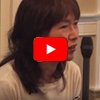Interview with David Ramos, Part 1
Blog / Produced by The High Calling
As the founder of Latino Leadership Circle, the Rev. David Ramos works with other Latino leaders to provide venues for theological reflection, pastoral support, and educational forums. Also, in his capacity as a staff minister at Faith Fellowship Ministries, David serves as the Chancellor of Faith International Training School. In addition, he’s conducted missionary initiatives in Africa, Colombia, Cuba, Dominican Republic, India, Philippines, Turkey, Spain, and Venezuela. We decided to sit down with David to glean his insights regarding how he creates opportunities to give those who feel they’ve been excluded from the conversation the opportunity to have a real voice in the church.
What are some of the best leadership lessons you’ve learned from your work as an ordained minister?
I’ve learned to put the people as a primary focus. If I focus on the needs of people and I factor their motivations, their fears, and what they are struggling with, then I’m able to be more sensitive to their needs and able to leverage their gifts in a way that they’ll find meaningful. So, part of my approach to leadership is really trying to get to know my people and to appreciate them individually.
Are there specific Bible verses or stories that have been most helpful to you in your work as a leader?
One of the verses that immediately comes to my mind is when David says about God, "Your gentleness has made me great" (Ps. 18:35). There has been so much talked about in the media about leadership. Ministers were modeling their churches on the paradigm of pastor as CEO; and some were actually taking cues from Donald Trump. So I went the total opposite direction. God had a tender relationship with David. The love David experienced with God enabled his gifts to grow so that he could become a very successful warrior, author, and leader. So, I believe in gentleness.
How do you define the idea of local leadership?
I believe biblical leadership aspires to have people tap into spiritual motivations and questions of meaning and purpose. This style of leadership takes a serious look at spirituality—not just as a luxury or something that one does on the side—but as something that forms one’s identity in a very real way. I believe that people yearn for spirituality. Many people feel divorced from their roles in the workplace. A lot of people suffer psychologically and physiologically, because they hate their work. If we could get people to align their labor with what is most valuable to them, I think they will feel more actualized. And I think that we’ll get better employees.
Why did you found the Latino Leadership Circle?
Back in 2001, I was seeing talented young leaders here in New York City who were divorced from the matrix of what was going on. I wondered, "Where are the mentors? What are they doing with this whole generation of emerging leaders?" I would kind of complain to God about this. Then, I felt God tell me, "Why don’t you do something?" I was a little stunned by that at first.
Then, I decided to gather friends and people I knew in the workplace who were divergent in their political views and their theological views. I invited them to come to have a discussion about their lives. Out of these meetings came the Latino Leadership Circle (LLC), which is a cohort of ministers and marketplace leaders. One of the primary things I wanted to do was to create a safe place where people could come and bleed. People have described the LLC as a lifeline where a great deal of intimacy has occurred. Also, we’ve moved into creating educational events in the city so people have forums available to look at the various issues.
How do you know that this venture is God-centered?
One of the things the Bible talks about is the "fruit of the Spirit"—love, patience, mercy, kindness. I see these reflective characteristics in the people who participate in the LLC. Also, I see it in the way we engage other people when we partner strategically with other organizations. We attempt to value them and really attempt to glorify God in all that we do.
How do you see the LLC working with your partners overseas?
We’ve begun to think of this notion of a global federation of the LLC. We have been approached by many other cities who want to create an LLC. While we just haven’t followed up on that, there is this idea of connecting people who are of like spirit. But it’s not just one particular city or environment. How do the global realities impact what we can do to help our brothers and sisters in a different country? I believe that our generation is seeing that gap being closed because of the Internet and the freedoms we have that generations before us did not have.
What is the impetus behind launching the ACTS Urban Youth Leadership Training program?
As a young minister, I was in a no-man’s land. Not only did I not receive any support, but I had a lot of resistance from my own local church. I didn’t want other young people to have to suffer the things that I suffered. So, I started working with the American Bible Society as a director of Urban Youth Strategy. One of the things that I proposed to them is to create a leadership program.
ACTS is an acronym for Assessment Consultation and Training and Support. The training is a 12-week intensive interactive training where we get urban youth leaders to learn about different things, such as strategic planning, project planning, creating community assessments, leadership team building, and social justice. We’re trying to help urban youth by giving them executive skills so they can actualize the responsibilities they have in their local churches.
How do you mentor others?
We’re looking to return to creating this mentoring dynamic where younger people can come and be able to bleed and then share and discuss their personal and professional journeys. Also, we stay in contact with our graduates and the people involved with LLC by inviting them to participate and collaborate with some of the events we do in the city.
Who have been your mentors?
My pastors in my life have all been mentors. They were men of God, whom I have a great deal of respect for. Even though some were austere, they projected a responsible leadership and underscored virtues, such as holiness and the severity of leadership. They gave me a sense that one needed to be responsible and have an intimate relationship with God.
One much more contemporary mentor would be Rev. Dr. Raymond Rivera from the Latino Pastoral Action Center. I trained as a professional social worker, and I always felt that the gospel and the community were interconnected. But I didn’t have a language to put into action that part of the gospel mandate to reach the poor and to be able to work with those who were less fortunate than I was. Rivera had all these theological categories that resonated with my spirit and enabled me to pursue the dreams and the ambitions that I have to marry social advocacy and theological training.
How did he help you stay motivated when working through some very difficult situations?
What I learned from Rev. Dr. Rivera is his commitment to the community. He lives within a community that he’s been committed to for decades. He’s a survivor who has weathered many storms. That stalwart spirit—of finding a way where there’s no way, and holding on in spite of our struggles—has been inspirational for me.
Also, I think that I’m of a particular temperament that is naturally more jovial. I’m more sanguine in my spirit. That’s helped buttress me against negativity, as well as the sometimes personal attacks by peers or other types of betrayals that I have encountered that are just a part of leadership. The dynamic of unwarranted competition that sometimes occurs is painful but also laughable. I think that God has enabled me to have a good spirit about it all and to be able to laugh at the end of the day.
How do you deal with those situations in which someone is treating you in what you might describe as an unbiblical manner so that your response glorifies Christ?
I believe that Jesus is a great example of suffering through false accusations. They not only attempted to kill him, they successfully murdered Jesus Christ. Through all this, he loved his enemies. Chapter 5 of the book of Matthew underscores in the Beatitudes that we are to love our enemies and to pray for those who despitefully use us.
Now, I know that’s easier said than done. Believe you me, I’ve had a lot of times when I’ve felt angry or very, very hurt by people’s attitudes, as well as things they’ve done to mitigate, undermine, or outright obstruct some of the things I try to do. But I believe that love is very powerful. Oftentimes, people think of love in terms of weakness. They see that as a weak virtue. However, Jesus demonstrated throughout his ministry that love is very, very strong. As leaders, we need to return to Christ-like leadership that is epitomized through love in action.





